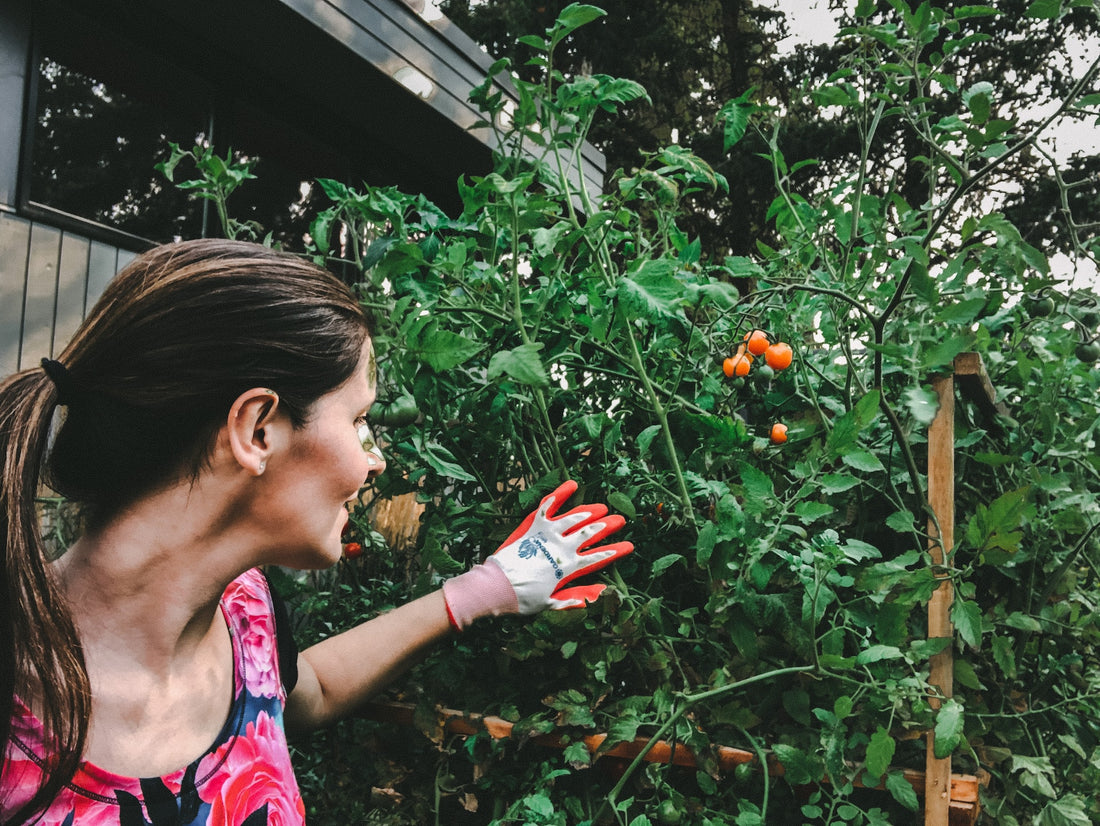Being in this world is exhausting. Social obligations, expectations, 24-hour news cycles, errands to run, constant social media alerts, text messages, emails, and so much more tax our brains daily. The demands of our hyper-connected world can be challenging to keep up with for anyone.
For introverts, this is especially a problem. The overwhelming expectations can send an introvert on a desperate pursuit of solitude. Gardening is a quiet, captivating activity that can provide the perfect space an introvert needs to unwind and recharge.
Introverts need a quiet space that is all their own to thrive. They need time to think, wind down and process the day. They also need space to delve into the projects and subjects that interest them. An independent introvert prefers a simple, quiet existence. And most significantly, introverts crave a deeper purpose. All of these things can be discovered and enjoyed in a garden.
A garden is immersive. It doesn't matter if it is a large garden plot or a collection of potted plants on the front walkway. A garden requires time, energy, focus, commitment, and dedication. It takes months for a plant to grow from seed to fully mature.
During this time, the fledgling plants need nurturing. Constant, consistent caretaking is the only way they will grow and thrive. This means large chunks of time must be set aside to tend to the garden. And so, the garden becomes a built-in space where the introvert can escape and unwind.
When garden space is present, the introvert doesn't need to create reasons or "make excuses" to step away from family or friends for some much-needed respite. The garden represents an open space that requires attention, and no one will question the motivations of a person going to tend a garden. This is especially important since it can be challenging and overwhelming for introverts to explain why they need space.
Many people don't understand and think the introvert is anti-social or unfriendly. This is far from the truth, of course, yet it is a misconception that persists. Explaining to people constantly why one cannot attend an event or wants to be alone is exhausting. And sometimes, it can become contentious and often increases anxiety and stress. Having space and a hobby that doesn't require explanation and provides all the necessary private time is crucial to the well-being of an introvert's mind.
Gardening is stimulating. There is so much involved in gardening that it is easy to dive in and become completely immersed. A garden needs to be planned and designed. Plants need to be chosen. Space needs to be prepared. What plants should be grown together? How much space is needed for them? How much sun does each plant need? Where is the best place to locate the garden? This is an ideal place for an introvert to shed the demands and troubles of the outside world and become entirely engrossed in the task at hand.
The focus needed to tend to a garden can facilitate a meditative state. Each task requires the full attention of the individual. If you are weeding, discerning between seedlings and weeds is absorbing. Planting seeds is easy, yet it needs to be done in a specific way for each vegetable or flower. The plants need to be checked for pests and diseases frequently. All the gardening details are consuming and focusing on them helps to turn off an overactive mind. The focus, in turn, can lead to tranquil calm and a peaceful mind.
Spending time digging in the dirt, planting seeds, and encouraging their growth is a great way to be outdoors. Time outside in the fresh air and the sun are benefits of tending a garden. Gardening is active, and a gardener plays an active role in creating new life all around.
This is invigorating to the senses and creates a purpose and value. Watching the plants grow, monitoring their progress, and encouraging their success, brings meaning to the world and one's own life. A sense of accomplishment prevails and refuels the soul to untold degrees.
Growing flowers brings beauty into the world and makes the world all that much nicer to live in. The flowers can be shared with friends and neighbors, spreading joy. Vegetables nourish the gardener and can be shared with friends and neighbors. A garden encourages a sense of community even when only one person is tending it.
It is a significant way to connect with others without having to spend parcels of time physically socializing. The accomplishment of growing one's own food and potentially being able to share it with others fulfills much in an introvert's life.
Solitude, the time to think quietly and reflect, is principal to an introvert's well-being. Without it, introverts get overstimulated and overcharged. If no time is set aside to restore the mind, it can lead to lashing out, moodiness, and brain fog. Long spells of quiet solitude are heavenly and necessary to an introvert.
In a garden, this solitude is readily available. There is no one to talk to or interact with except the plants. Or perhaps the bees and butterflies fluttering around. Gardening activities, like planting seeds, mulching, weeding, and watering, can all be done by one person. There is little work in the garden that requires the assistance of others. This is an ideal situation for an introvert.
Being part of, and creating something, can do a great deal for the health of the mind, body, and soul. A garden gives all these benefits to the introverted soul and so much more. A garden is a therapeutic oasis for an introvert to recuperate, recharge, and prepare for the next challenge.



